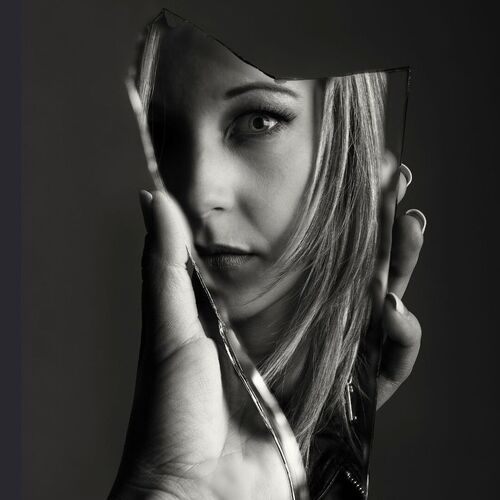Body Dysmorphia
Information
I am one of only a few psychotherapists who have been through severe Body Dysmorphia, made a full recovery and now work supporting others with their own recovery. I imagine that I must be the only one of these therapists who used Iboga as a tool for recovery.
BDD is often referred to as an anxiety disorder, which has its roots in relational trauma. This repressed material presents as free floating anxiety, insecurity, low self-esteem and other expressions of shame. At some point in the journey of a sufferer of BDD, they began to associate their painful feelings with flaws in their superficial body image. The world tells us in so many ways that to be beautiful is to be worthy, valuable, safe, acceptable, lovable.
The sufferer holds an implicit expectation that if they can perfect, or fix their image, then they will feel ok, but this leads on to hyper-focus on perceived flaws, which then become perceptually magnified and distorted. Enormous distress is experienced as the sufferer gets trapped looking in the mirror and/or engaging numerous avoidance behaviours.
People suffering with BDD have their will trapped in this destructive cycle and it becomes compulsive to the point where it seems inevitable that one will tumble down into the same pit as always.
In this sense BDD can be looked at as a process addiction. Much like substance addiction, the roots are in trauma and injury to ones sense of self. Attempts are made to fix an emotional problem and a problem of identity and relatedness, through making superficial changes.
In substance addiction there is a discovery made, that the pain of inauthenticity, alienation and the underlying trauma can be numbed or escaped, in some cases facilitating a withdrawal from life and in others fuelling the efforts to maintain a false-self presentation. In this way a psychological and a chemical dependency to the drugs are established.
In BDD, the process addiction is founded on trying to address an emotional problem on a superficial appearance level. As long as we remain convinced that safety lies in looking a certain way, then we will be stuck with distorted perception of ourselves and the clinging and desperate search for answers, will keep us stuck in a holding pattern, never recognising the underlying roots of the problem.
In both substance addiction and BDD, recovery is fundamentally about establishing a healthy self-relationship and by extension, the ability to live from a place of authenticity and to feel implicit belonging. In both, attachment, or clinging to false hopes, stands in the way of deeper processing and resolution taking place.
I have observed that symptoms that arise, very often promise to serve the function to distance oneself from the core pain, but as habits develop and become increasingly compulsive, these can actually serve to amplify the negative quality of the core issue. This amplification eventually leads to a state of inescapability and therefore an inevitable confrontation with the core wound unified with and exacerbated by its symptomatic representation.
As an example, feelings of alienation or injury to ones sense of acceptableness may lead to BDD symptoms, as described before. The hope is that through fixing flaws, the feelings of shame will cease. But this actually leads to the individual becoming lost in a private hell. In this way, feelings of shame and alienation are amplified and become seemingly inescapable, using the limited perspectives that gave rise to the symptoms.
The experience of inescapability may happen more than once, and these actually represent moments of grace, whereby, there may be a recognition that all of this is automatic and unconscious. In other words this may be an awakening of awareness, as much as a dreadful state of entrapment.
It is often during one of these moments, that therapy is first sought, with the notion ‘I can’t do this alone any more’, or ‘I am lost and I need help’. In these instances there is an opening beyond the self-referential, alienating cycles of dysfunction that may have been mounting over a long period of time. This is why we call it grace, because we find humility and awareness arises that transcends the limitations of our own imperfect perspectives.
These kinds of speculations are here to sow seeds, that may be useful in understanding recovery in a productive way, but I don't want to get into too much depth in this introductory passage. This is a journey to be undertaken, not a late night philosophical debate.
In my own journey, I made an enormous amount of progress toward health and recovery, with psychotherapy, but I was left with a residual clinging, somewhere deep inside my body. This was like a very subtle and deeply conditioned tendency to withdraw and to experience this psychological contraction and narrowing of consciousness. I saw this as the seeds of anxiety, left in my unconscious mind and although I did everything I could to not water these seeds leading to an episode of BDD, I found that this basic anxiety and insecurity continued to bother me. No amount of talking therapy, no alternative therapies I explored, no spiritual practice was seemingly able to dislodge this tormenting element.
It was at this point that I came to Iboga and underwent my first flood dose. The visions showed me the deep truth of who I am, from my physical body viewed through accepting and loving eyes, as a soul and in my relationship to the unifying spirit that moves through all things. Iboga was like a highly skilled surgeon, operating and addressing the roots of my troubles.
In my work over the past decade, I have worked with countless individuals suffering with BDD and I see varying degrees of success. Some clients make rapid recovery and some take a long path, others may see little improvement, or may become inpatient, distrustful and give up. This work is often highly challenging, as a therapist I cannot drag someone along and transplant my own insight faster than they can digest.
I am unable to guide my BDD clients to Iboga for legal and ethical reasons and by no means is Iboga necessary to recover from BDD.
I used Iboga, after nearly a decade of intensive psychotherapy and at a point where I was fully able to integrate the experience, into a pre-established healthy foundation. I would not advocate that individuals in the depths of despair seek Iboga as a way to rescue themselves. This is highly likely to be a challenging and unproductive experience. Instead, those who happen to consider this route, are advised to seek the best psychotherapy available and to perhaps return to reconsider Iboga, once progress has been made and you are in a place where you feel recovery is well established.
Please refer to my other websites, If you are interested in working toward recovery from BDD. Here I offer one to one psychotherapy, an insight based programme and support for parents. https://www.bodydysmorphiatherapy.com/ and https://www.bddclinic.org/





